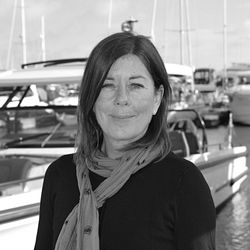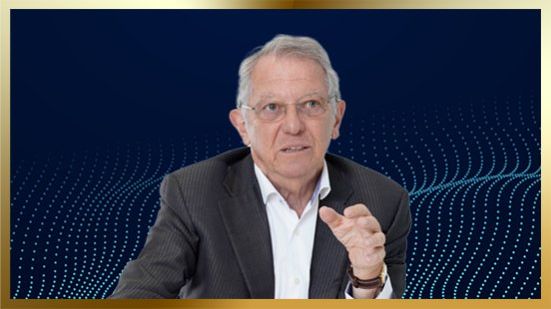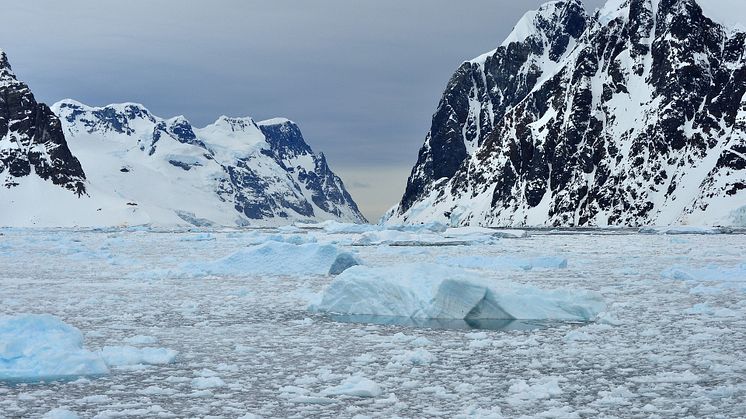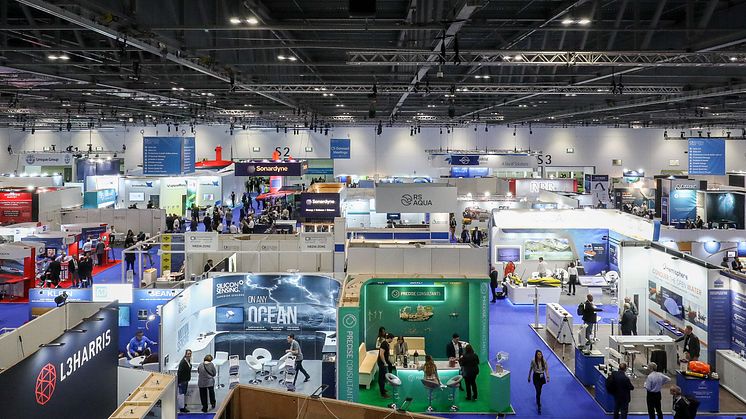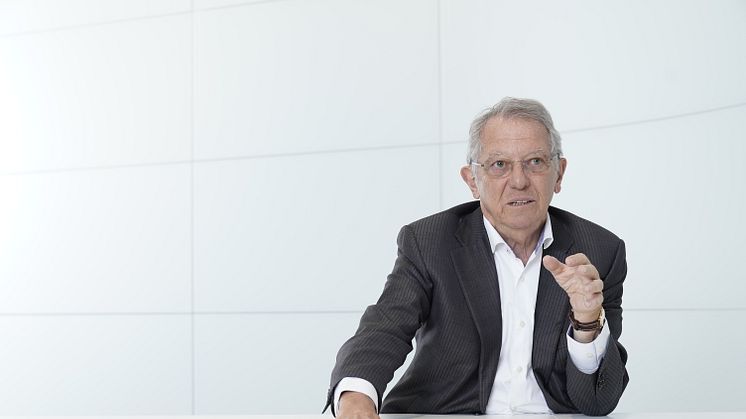
Blog post -
Oceanology International video interview and article: Sir David King - Rising to the Challenge
Sir David King talks to Oceanology International ahead of his keynote presentation on the threats and impacts of climate change at the Catch the Next Wave conference at Oi24 in March
The realities and extent of the climate crisis and biodiversity loss are daunting. The risk to humanity and our way of life is sobering. After many years of limited action and slow progress, the need for an unprecedented response is now urgent.
From increasing rates of melting ice in Greenland, to the threat of rising sea levels, extreme weather events and shrinking living biomass, the latest evidence, figures and reports confirm the intensification of the global challenges facing the planet today.
In the words of Sir David King, a leading international voice on climate science, “we can’t sit by and just watch all these things happening”. If we do, the outcome will be unthinkable, including, for example, major global cities and countries under sea water by the end of the century and critically low levels of fish populations.
The oceans are at the heart of a series of global challenges and fundamental to a range of opportunities and solutions which could help turn the tide.
At Oceanology International 2024, Catch the Next Wave brings together a passionate community of influential experts to discuss the complete picture and how to leverage the ocean’s immense potential.
Sir David, who is a former chief scientific adviser to the UK government, and the founder and chair of the Climate Crisis Advisory Group (CCAG), an independent panel of leading international climate experts, will present the Opening Keynote: Rising to the Challenge.
Ahead of this year’s ground-breaking conference focusing on the Ocean-Climate Nexus, Oceanology International speaks to Sir David King, Emeritus Professor of Chemistry, University of Cambridge.
The Climate Risk: The key messages from Sir David King
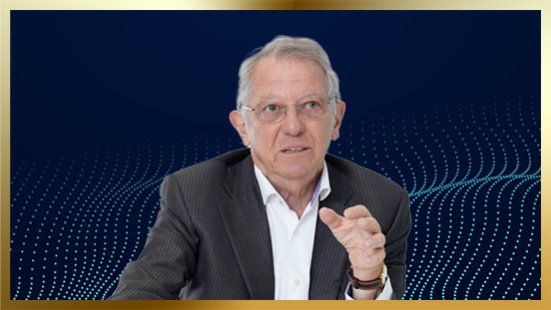
It is well established that only the most determined collective will, incorporating extensive collaboration and action across the developed and developing world, can effectively address the global climate emergency facing us today.
For the ocean technology and marine science community, there is an ever-growing spirit and commitment to make a difference. Sustainability, climate repair and protection of biodiversity are at the centre of new innovations, solutions and research, and are key aspects of businesses’ future-proofing, decision-making and investment.
Starkly portrayed by the hands of the Doomsday Clock hovering at 90 seconds before midnight, time is running out to tackle the climate element of this symbolic countdown, as we already question what life will be like in as little as 50 to 100 years.
Speaking to Oi this year, Catch the Next Wave opening keynote speaker Sir David King said: “I think the most important message for me to get across is the state of the world facing the climate risk, the nature of the risk and how it is taking us quite by surprise the extent of the challenge that we are now faced with. Just last week [January 2024], a very important paper was published in ‘Nature’ which sets out the challenge from Greenland ice melting. This is a quantitative analysis going back over the past 38 years of the net loss of ice from Greenland. They are saying that Greenland is now losing 30 million tonnes of ice per hour, on average since 1985. It’s speeding up, so it’s much faster today. Over the past 35 years, Greenland has lost an estimated one trillion metric tonnes of ice. The reason that is a matter of extreme worry is because all that melting ice goes into the oceans, the ocean sea levels are therefore raised and, when all the ice has melted from Greenland, ocean sea levels will have risen by 7.5 metres. We are not saying we are on the way to melting all that ice now. We don’t know that. But, on the other hand, we know that the Himalayas, the Alps, the highest mountains, are losing ice year on year. We also know that down in Antarctica in 2023, we had the largest recorded loss of sea ice cover. As the sea ice cover goes, reflecting sunlight back into space, the remaining blue water absorbing that sunlight is putting the ice on Antarctica under threat.
“We have a multiple challenge of ice on land melting and running into the oceans. I believe this means that if we continue in this way, Vietnam, for example, which is very close to sea level and the third biggest rice producer in the world, will be under sea water by mid-century with the current rate of loss of ice, at least once a year, which means the rice paddy fields will no longer be productive.
“So, what we have is a series of global challenges, from what is happening in the Arctic and Antarctic, also the Himalayas and the Alps. What do we need to do? I think that is the very big question. We can’t sit by and just watch all these things happening, because global cities that are sitting at coastlines are clearly under threat with even a one metre sea level rise which is well on the cards by the end of this century, even before. We know coastlines will be changing, the map of the world will be changed dramatically going forward. All this puts in need a focus on managing the ice, particularly in the North and South Pole regions.
“I want to focus as well on the other challenges we are looking at in our oceans. Ocean living biomass is dramatically reduced today, compared with say 400 years ago, before that great big whaling exercise began which reduced the baleen whales to something like five percent of what their population used to be. We are now learning that the baleen whales had a critical function in the oceans to keep the other bio-organic matter, fish, crustaceans and so on, in good supply. What we need is an overall view on looking at the sustainability of the oceans going forward.”
The 4R Planet Strategy
Founded and chaired by Sir David, the Climate Crisis Advisory Group is a north-south group, created in response to the emergency, with a mission to set out a critical pathway for urgent global action on climate change. The group includes scientists and world leaders, bringing together expertise from both developing and developed countries. Important work to date includes 20 papers and reports, and four country studies on the United States, China, India and Brazil. The latest report on extreme weather events reached an estimated 1 billion people.
Sir David continued: “If we go back to 1989, when James Hansen, the NASA scientist, spoke to the US Senate. He said to ‘act fast’ because climate change is upon us, because of our burning of fossil fuels and the cutting down of the tropical forests. At that time, you could say we still had the time to deal with this by rapid emissions reduction and many, many aspects of that did begin by the time we got to 2000. But it’s all been very slow. Today, we have got to reduce emissions deeply and rapidly, but that is not enough. The Climate Crisis Advisory Group I have set up is focusing on what we need to do, what is the comprehensive strategy.
“We’ve got four ‘Rs’. The first R is to Reduce emissions deeply and rapidly. The second R is to Remove greenhouse gases at scale. We’ve already put too much greenhouse gases up there - look at the damage we are already putting in train. The oceans offer a dramatic opportunity because the oceans are 72 percent of the earth’s surface. We have a vast reservoir to work on, if it is possible. The third R is Repair. We need to repair those parts of the climate system. We are looking at the North Pole region, keeping the ice that is formed over the Arctic Sea during the polar winter, so it is there during the summer. There are scientists round the world working on how we might do that. The fourth R is Resilience. Each part of the world is now already facing dramatic weather changes. We are all experiencing this directly. What we need is each part of the world to have a resilience plan, to manage to adapt to the changes that will be happening. We need as well, and this is really important, to look at our biodiversity and the biodiversity of the oceans is a critical pathway to managing that.”
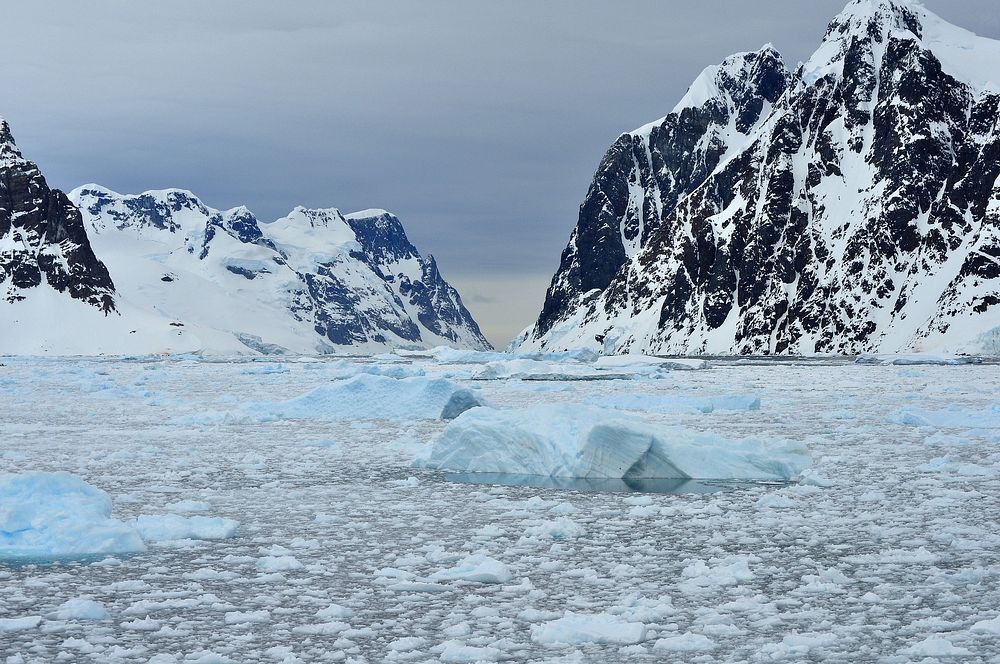
Part of Nature, not Apart from Nature
From personal choices, to business decisions and industry strategy, Sir David emphasises that we have been living a lifestyle over the past few hundred years which does not recognise that what is of benefit to biodiversity, is also of benefit to humanity. With this in mind, the maritime sector needs to adapt, particularly in the transition away from fossil fuels.
He continued: “The shipping fleets of the world play a critically important role in our globalised economy. The movement of goods around the world via ships is absolutely critical to the well-being of all countries. I would never under emphasise that. At the same time, the CO₂ emissions per km of travel are relatively low, given the weight the ships can carry. Still, shipping must look at the energy required to get these ships moving and that in itself means how do we move away from fossil fuels? We need to recall that all aspects of fossil fuel usage need to be abated as we move forward in time. One of the outcomes from COP28 that is positive in terms of wording is they do refer very clearly to the transition away from fossil fuels. It is the first time a COP meeting has concluded that.
“Second is the importance of the ocean in restoring biodiversity. Restoring biodiversity is a critical pathway to us understanding that we human beings are dependent on the natural world. We depend on our eco systems and today we are altering the weather of the world which is a very big challenge. We have already lost a great deal of our biodiversity in our oceans and on land. How can we develop new technologies that will help the bio systems of the ocean, but will also help humanity? As we move forward, the fish in the oceans play a critically important role in food stuffs for human beings, due to the high protein level of fish. But we can only manage this if we can restore fish populations back to where they were, say, 400 years ago - and any effort that can be made by these fleets as they travel around the world to see if they can restore ocean biomass. My favourite personal project, which I initiated here at Cambridge University, has the title Marine Biomass Regeneration. We have a global consortium working on this. Four members of the consortium have research vessels out on the oceans doing experiments to see how we can begin to make a recovery of marine biomass, including the baleen whales. We want to see if we can recover mammals, crustaceans and ocean fish. This is going to benefit the oceans in terms of biodiversity, but it is also going to benefit human beings. This just emphasises what is critical to understand – we are a part of nature, not apart from nature. We have been living a lifestyle over the past few hundred years which doesn’t recognise that.
“The white cloud cover is another initiative here at Cambridge – a process of developing white cloud cover which is based in the oceans. What we are doing is pumping sea water, in tiny droplets, into the atmosphere and over the warm sea when the sun is shining on it. These droplets are carried high up into the atmosphere, 5-6000 feet. As they go up in this warm air, they lose the water and you are left with tiny crystals of salt which hover and then pick up more water vapour from their surroundings and you’ve got a white cloud. So, we know how to make white cloud, simply using sea water in this way. It is a very sustainable process. Now we need to see if we can make these white clouds in such a way that the winds carry them over the Arctic Sea, which means we need good information from the meteorological offices on the direction of the winds. It’s a massive project in its final form, but you must think of the damage created by rising sea levels literally around the world and the loss of big cities. The north side of Jakarta is already under sea water right round the year. The country of Indonesia is looking to move its capital to higher ground. So, we have these challenges, from New York, to Mumbai, to London, going right round the world to very large cities. Managing to keep sea levels roughly within limits, meaning less than half a metre sea level rise, then buys us time to remove excess greenhouse gases and also continue the process of defossilising our economy.”
90 Seconds to Midnight
“The Doomsday Clock may have a good purpose as a wake-up call,” said Sir David. “It does emphasise this point - we can look back in time, thousands and millions of years into our past, even billions of years. As human beings, we can look back at least 20,000 years with a lot of confidence. How far can we look forward with confidence? What we see at the moment, particularly with the inter-governmental panel on climate change and the United Nations Framework Convention, is that what we are doing is amazing short termism. We are looking at 50-100 years at most. Can we manage to survive for 50-100 years? I’ve got a grand daughter who has just turned four. What’s her life going to be like by the end of the century? And can we go further and look forward, say, 1,000 years from today?”

Interested in hearing more and learning from industry experts?
Sir David King is one of the leading speakers at Oceanology International’s Catch the Next Wave conference on Thursday, 14th March, the final day of Oi24. In his Opening Keynote, Sir David will cover the key impacts of climate change and why they constitute an existential threat. He will also discuss how much time we have to mitigate the causes and adapt to the impacts.
Join us at Oceanology International and expand your Blue Tech and Ocean knowledge through strategic conferences.
March 12-14 2024 at ExCeL London
Ends
Note for editors: Register for your press pass here to attend Oi24.
For further information, please contact:
Mike Enser, Marketing Manager
Oceanology International
Tel: +44 (0)20 8439 5226
michael.enser@rxglobal.com
Karen Bartlett
Saltwater Stone
Tel: +44 (0)1202 669244
k.bartlett@saltwater-stone.com
About the Oceanology International Portfolio
Oceanology International – Connecting the global ocean technology, engineering and science communities
Oceanology International (Oi) is the global forum where the ocean industry, academia and government connect to discover innovative solutions from the ocean technology and marine science communities to improve strategies for exploring, protecting and sustainably operating in the world’s oceans and waterways. Held at ExCeL London, Oi brings together ocean professionals, facilitates ocean connections and showcases ocean innovation and technology.
www.oceanologyinternational.com
Oi exhibition and conference incorporates various events and features, including:
- OceanICT – A smarter, more sustainable ocean through connectivity
Co-located alongside Oi, OceanICT helps connect AI, communications, satellite, IT and IOT solutions providers with key ocean- and water-based end user sectors from around the world.
- Catch the Next Wave – Innovation at the ocean-climate nexus
Returning in 2024 for its 6th edition, the Catch the Next Wave conference pairs speakers from within and outside of the ocean community, with the aim of sparking new thinking and ideas across disciplinary boundaries and between sectors. The special edition at Oi24 will focus on the climate and biodiversity crisis. It will take a futuristic look at how key areas of rapidly evolving technology might contribute to innovative solutions at the ocean-climate nexus, helping to achieve net zero and beyond, at the same time as supporting the restoration of the Earth’s essential biodiversity and ecosystem services.
- Ocean Futures – Meeting future ocean technology needs
Thought leaders from industry, academia and government come together to discuss meeting future ocean technology needs in line with market developments and new ocean enterprise strategies. Held in the keynote Ocean Futures Theatre within Oi, it features panel discussions and strategic debates on topics including Transitioning the Ocean Economy, Sustainable Offshore Operations, BlueTech Investment and Future Talent/Careers.
About RX – We’re in the business of building businesses
RX elevates the power of face-to-face events by combining data and digital products to create magical experiences and continual connections. RX enables customers to learn about markets, source products and complete transactions at over 400 events in 22 countries across 42 industry sectors. RX is part of RELX, a global provider of information and analytics for professional and business customers across industries.
About RELX
RELX is a global provider of information-based analytics and decision tools for professional and business customers, enabling them to make better decisions, get better results and be more productive. The Group serves customers in more than 180 countries and has offices in about 40 countries, employing over 30,000 people.
